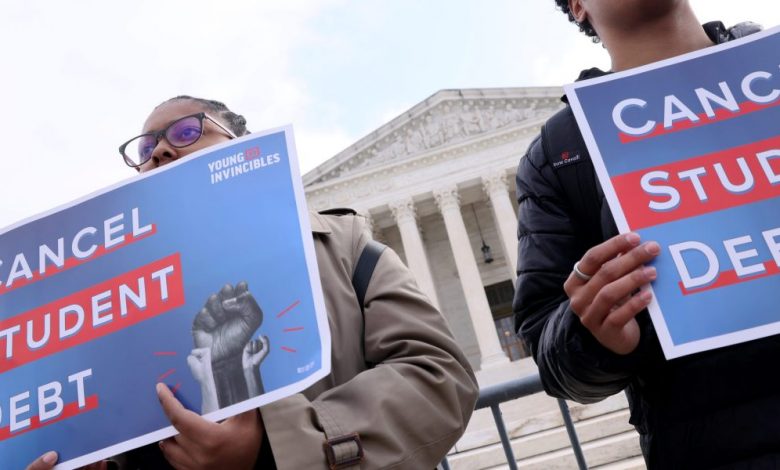Supreme Court questions Biden’s student loan plan

The court heard hearings in two cases related to Biden’s widely publicized student loan forgiveness plan. The conservative justices specifically questioned the ability of the Biden administration to implement the program without congressional approval and whether the HEROES Act was adequate legal justification for widespread forgiveness.
“We take the idea of separation of powers very seriously and that power should be shared to prevent its abuse,” said Chief Justice John Roberts.
The conservative judges also questioned the fairness of the program: Why should some people get debt relief and others shouldn’t?
“Why is it fair?” Judge Samuel Alito asked. “Why was it fair to the people who didn’t get arguably comparable relief?”
But before they can decide whether the student loan debt relief plan is legal, they must decide on a position. Other judges, including Amy Coney Barrett, a conservative, questioned whether the states — Arkansas, Iowa, Kansas, Missouri, Nebraska and South Carolina — and two people who brought the cases have the right to do so. To be eligible, states and individuals must demonstrate that they would suffer tangible harm from the loan forgiveness plan.
For now, that depends on whether potential financial damage suffered by MOHELA, a student loan servicer, would also affect the state of Missouri. The Servicer who is not a party to the litigation could potentially lose revenue if an edict is implemented. States argue that this, in turn, would reduce the service provider’s contribution to supporting Missouri college programs.
The Liberal judges did not seem to believe this reasoning and asked why MOHELA was not present. And the Biden administration argues that because MOHELA is separate from the state, the argument doesn’t matter anyway.
“Usually we don’t allow one person to follow in another’s footsteps and say, ‘I think that person has suffered harm,’ even if the damage is very great,” Judge Elena Kagan said.
The Liberal justices also emphasized that Congress gave the Executive Branch power to implement changes to the payback program through the HEROES Act.
The decision is not expected before May or June. Vaishali Rao, a partner at Hinshaw & Culbertson, expects the judges to act quickly to issue the opinion due to the huge commercial interest. The forgiveness plan could apply to up to 40 million federal borrowers, according to the White House, and cost $400 billion.
Both individual borrowers and student loan servicers need time to plan and prepare their finances, regardless of whether the forgiveness goes through.
“It doesn’t seem to have escaped the judges’ notice that it’s a big deal for individuals and the industry,” says Rao, who represents service providers, collection agencies and lenders and has also researched student loan origination, management and collection practices. “And an earlier decision would help provide some clarity.”
Biden’s plan, announced in August 2022, would forgive up to $10,000 in state student loan debt for borrowers earning less than $125,000 a year (and under $250,000 for married couples), and up to $20,000 US dollars for those who received Pell grants while in school and who meet the same income requirements.
Federal student loan payments, which have been suspended for nearly three years, will resume 60 days after the court’s final ruling was released.
Learn how to navigate and build trust in your organization with The Trust Factor, a weekly newsletter exploring what leaders need to succeed. Login here.



